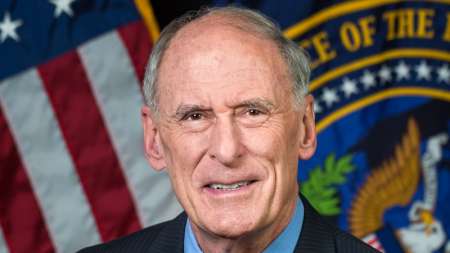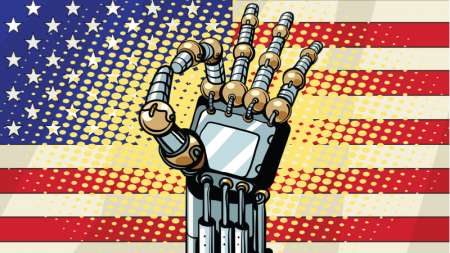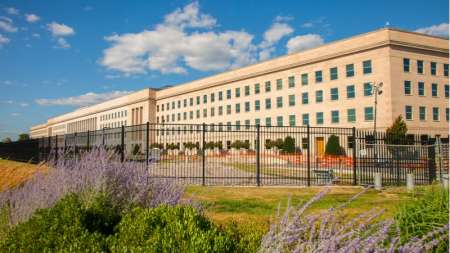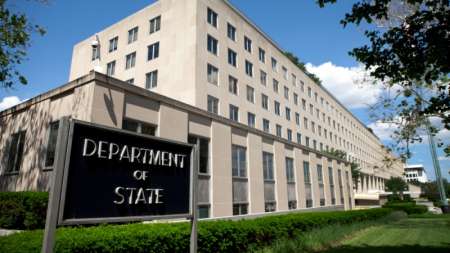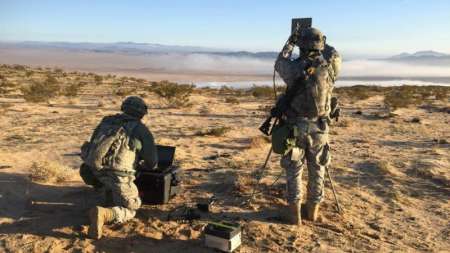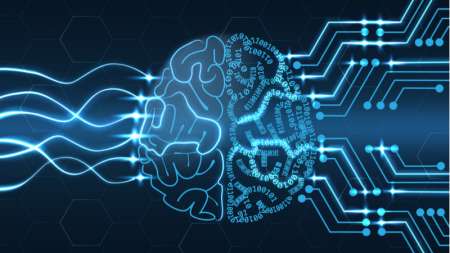Department of Defense (DoD) Chief Information Officer Dana Deasy said today at the Defense Systems Summit that he has identified four “key strategic areas” that will work to support the National Defense Strategy (NDS). Those four areas – cloud, artificial intelligence, C3 (command, control, and communications), and cybersecurity – are organized not in order of importance, but rather “order of integration,” Deasy said, with each of the priorities flowing from the prior one. […]
Director of National Intelligence Dan Coats said Monday that the intelligence community (IC) will be prioritizing a comprehensive cyber posture, machine-augmented intelligence, and modern data management as “foundational priorities” in the coming years, following a year-long reexamination of the IC known as the IC2025 initiative. […]
The Department of Homeland Security’s Science and Technology Directorate and the Transportation Security Administration announced the winners of their passenger screening algorithm challenge that solicited new automated detection algorithms to improve speed and accuracy of detecting “small threat objects” during airport passenger screening processes. […]
The White House isn’t doing enough to address in a public forum a range of artificial intelligence issues and needs to institute a public process to seek comments on AI-related issues, said a group of six industry groups and more than 80 individuals from academia and the private sector in a July 4 letter to the White House Office of Science and Technology Policy (OSTP). […]
The Department of Homeland Security (DHS) is piloting a new artificial intelligence (AI) initiative with Canada’s Department of National Defense that kicked off today and aims to provide first responders and paramedics with information to help make potential life-saving decisions in the field. […]
The potential of artificial intelligence opens up the abundant future of game-changing machine-based applications in science, medicine, national defense, business, and just about every other area. But getting there while maintaining the U.S. lead in AI research and development will hinge on two old-school constants of innovation: money and people. […]
Deputy Defense Secretary Patrick Shanahan last Wednesday issued a memorandum that officially establishes the Defense Department’s (DoD) new Joint Artificial Intelligence Center (JAIC), confirming statements made by Secretary James Mattis and other DoD officials in April that a center to house DoD’s roughly 600 AI projects was forthcoming. […]
Welcome to MeriTalk News Briefs, where we bring you all the day’s action that didn’t quite make the headlines. No need to shout about ‘em, but we do feel that they merit talk. […]
The Department of Defense (DoD) is using big data analytics and automated intelligence to both uncover discrepancies in budget-draining programs and engage leadership to direct funding to the correct priorities, according to a former Deputy Secretary of Defense and the founder of a business intelligence firm that supports the Pentagon. […]
Josh Marcuse, executive director of the Defense Innovation Board (DIB), said today at Defense One’s Tech Summit that both Silicon Valley engineers and national defense community members are stuck in a line of thinking about artificial intelligence (AI) and warfighting innovation that could impact safety and contribute to greater risk on the battlefield. […]
Google’s decision to pull out of the Defense Department’s (DoD) Project Maven artificial intelligence (AI) initiative without DoD consultation could have potential ramifications on American military and civilian lives, according to former Deputy Secretary of Defense Robert Work. […]
The State Department on Friday held the fourth United States-Republic of Korea Information and Communication Technology (ICT) Policy Forum in Seoul, South Korea, which brought together private sector representatives and delegations from the two nations to discuss how the countries can collaborate to advance mutual goals in areas of 5G mobile technology, artificial intelligence, inclusive Internet governance, and data privacy. […]
The Pentagon’s top research arm is sponsoring development of a first-of-its-kind software that can model the events that contribute to conflicts around the world, and, if not quite predict the future, at least offer a timely heads-up on what might happen next. […]
The National Aeronautics and Space Administration’s (NASA) Jet Propulsion Laboratory (JPL) isn’t just looking into rockets these days. […]
As the Federal government looks to emerging technologies such as artificial intelligence (AI) to help improve citizen services and lower government costs, applications that enable this new computer-based intelligence via application programming interfaces (APIs) might be the least disruptive and inexpensive way for agencies to get started. […]
Federal agencies and private sector firms are easing into intelligent automation (IA) technologies by first using those technologies to tackle repetitive processes and then moving closer to artificial intelligence (AI) applications, government and private sector officials said last week. […]
Welcome to MeriTalk News Briefs, where we bring you all the day’s action that didn’t quite make the headlines. No need to shout about ‘em, but we do feel that they merit talk. […]
A shift to the cloud offers government agencies an opportunity to embrace digital transformation, add automation, and rethink processes, said Federal IT panelists on Wednesday at MeriTalk’s 2018 Cloud Computing Brainstorm. […]
We sat down with Jeff Henry, president of ViON, in his office in Herndon, Va. The typical tech provider surroundings belied the epic changes at ViON, as it morphs from leading data center reseller to delivering government IT modernization as a service. […]
Military users will soon see a tenfold boost in the Department of Defense’s telecommunications network, in a move that will support the service’s combatant commands, the Joint Information Environment (JIE), and in the process, DoD’s push toward commercial cloud services. […]
The U.S. Cyber Command is ready for its close-up. The command announced May 17 that all 133 of its Cyber Mission Teams are fully operational, capping a roughly one-month stretch that saw the arrival of a new commander, the opening of a new operations center, and the official designation of Cybercom as a full unified combatant command. […]
Lawmakers hailed a new partnership that will leverage the Department of Energy’s high-performance computing and machine learning capabilities to help analyze the health records of more than 20 million veterans maintained by the Department of Veterans Affairs. […]
Lawmakers learned in April that the United States needs to write the script when it comes to artificial intelligence (AI). Leave this one to improvisation and we may have a tragedy on our hands. […]
Artificial Intelligence systems are known for getting results with compute-intensive analytics involving huge data sets and a lot of processing power. But it turns out they also can help users do more with less. […]
An official with data storage technologies provider Pure Storage told MeriTalk that issues holding back Federal government adoption of artificial intelligence (AI) technologies include the high cost of super-computing resources and the continued reliance of government agencies on legacy IT systems that were not created with AI applications in mind. […]
The White House’s planned advisory committee on artificial intelligence may or may not help keep the country at the forefront of technological innovation, but it is another sign that the government is getting more serious about the importance of AI and the potential threats of falling behind in the “AI arms race.” […]
How do you spell the future of government IT? AI. While that’s not going to get you too many points on the triple word score in Scrabble, the technology and applications will unscramble massive dividends in cost savings, service enhancements, and breakthroughs. […]
The White House said on Thursday that it will create a new artificial intelligence (AI) advisory committee–dubbed the Select Committee on Artificial Intelligence–that will advise the White House on AI research and development efforts in government and industry. […]
Artificial intelligence (AI) could increase global GDP by $15.7 trillion by 2030, according to PricewaterhouseCoopers. The prevalence of AI in modern society is growing at a rapid pace – and the Federal government needs to keep up. […]
For the first time in more than eight years, the House Appropriations committee shuttered its doors when it discussed budget issues with top Pentagon brass late last month. […]


